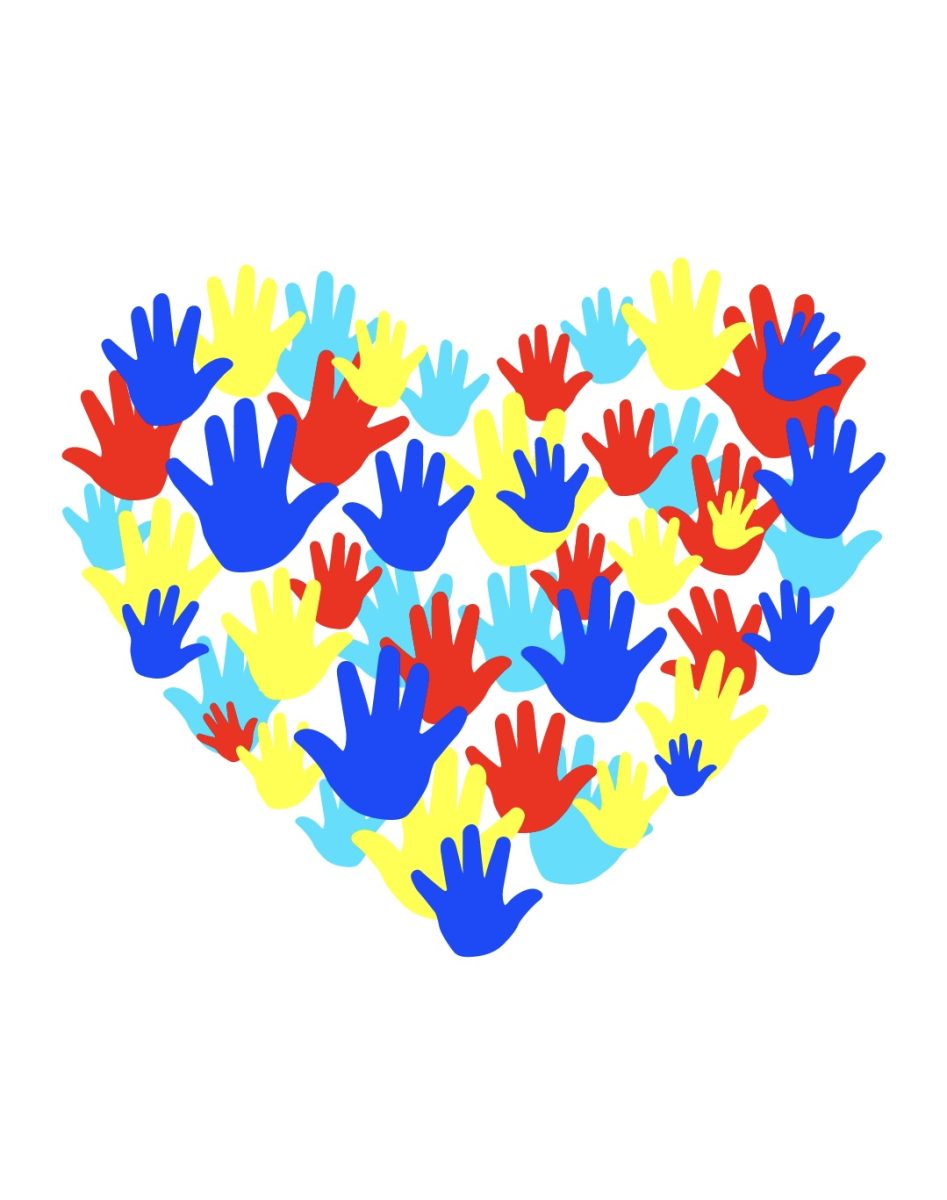Throughout April, the world will celebrate Autism Awareness Month. April 2 is World Autism Awareness Day. This celebration helps to break the negative stigma around the disorder.
This awareness day started in 2007, making this year’s celebration the 17th annual Autism Awareness Day. This day is meant to draw support to the programs that aid those living with autism.
Autism spectrum disorder, or ASD, is a neurological disorder that affects those who have it by giving them a wide range of difficulties. These difficulties can range from not understanding social cues to having mobility and speech issues. Since this disorder is a spectrum, the symptoms will be different for everyone that has it.
Some people with autism are extremely high-functioning, which leads a lot of people to never be diagnosed, resulting in them feeling misunderstood and not getting the support they need. According to Autism Speaks, a foundation that supports those with ASD and spreads the disorder’s awareness, others with the ailment have a stigma pushed on them, limiting them socially before their peers even get to know them.
Many believe those with autism are always incapable and underdeveloped than others, while in reality, a lot of people with autism are extremely smart. Geniuses like Albert Einstein, Elon Musk and Sir Isaac Newton had different forms of autism yet are still considered some of the smartest individuals in society today.
“Autism is mainly characterized by its unique social interactions, non-standard ways of learning, keen interests in specific subjects, inclination to routines, challenges in typical communications and particular ways of processing sensory information,” said the United Nations on its website.
It is often in culture that autism is misrepresented, leading many to think that ASD is highly debilitating. Autism can be debilitating, but it does not always have to be. Due to the lack of awareness and understanding, this stigma continues to grow, and people use this disorder in joking contexts.
On social media, the joke of calling people “acoustic” rather than autistic is common. This joke is harmful to the community because it downplays the reality of the disorder, making it harder for those with this disorder to be taken seriously.
“As a special education major I have noticed that a lot of people do not treat students with autism as equals within the classroom,” said Aubrey Gerber, a sophomore special education major. “They can often be looked down upon by their peers.”
Many people living with autism are discriminated against, not giving them a fair shot at a job, school and many other opportunities.
“As individuals, we can aim to educate ourselves about autism,” said Cora Blackford, a sophomore special education major. “It’s important to recognize that students with autism are just as capable of learning and understanding.”
At GC, there is a disabilities center, the Student Disability Resource Center, that focuses on aiding those who need a little bit of extra help. These accommodations include access to the Testing Center, a special quiet study room in the library and extra help managing classes.
“At The Center for Testing at Georgia College, we hold our mission of supporting students with accommodations or disabilities in the highest regard,” said Evita Shinholster, the Testing Center coordinator. “Our priority is to ensure that every student has access to the essential resources needed during their testing appointments, paving the way for their success in academic pursuits.”
People with autism, regardless of how far on the spectrum they are, deserve the utmost love and respect, just as any other human does. Just because a person has autism, it does not mean they are incapable or unimportant. At GC, equality and inclusion is a priority, meaning the spread of positivity throughout campus and beyond.


